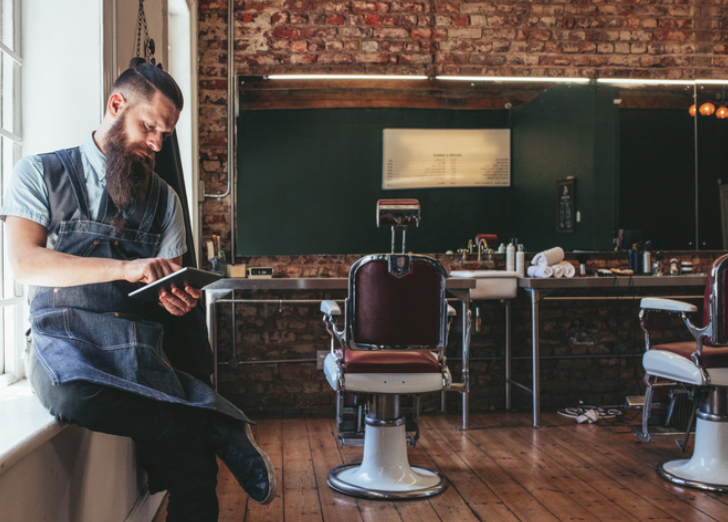In recent years, real estate investments have expanded beyond traditional residential projects. Not surprisingly, the salon and barbershop industry has become a profitable hotspot for property investment.
If you’re dreaming of owning your own salon or barbershop, there’s plenty to consider and a number of things to think about.
You need to understand how mortgage rates work, what their current status is, and what your options are for borrowing a loan, especially when it comes to properties that make money in the beauty world.
Unique Mortgage Rates for Salon and Barbershop Properties
Unlike mortgages for primary residences, financing investment properties in the beauty and barbering sector often comes with higher interest rates. This is because lenders perceive these ventures as riskier, reflecting the specialized nature of the industry.
If you’re considering investment property loans then make sure you have a comprehensive understanding of the details provided below.
Let’s take a closer look!
Current Status
The salon and barbershop industry’s investment property mortgage rates currently fluctuate between 6% and 7%, depending on the loan type. Staying up to date with these rates is very important if you’re thinking of investing, as they directly influence the overall cost of the loan and any potential returns.
Higher rates lead to higher expenses, reducing net income, while lower rates create opportunities for higher profitability. By staying informed about current investment property interest rates, you can make well-informed decisions on when and where to invest in the beauty industry.
Evolving Trends
Recent reports indicate a gradual increase in the average 30-year fixed mortgage rate all throughout 2023, although it remains slightly below the long-term highs observed in October.
Take into account that economic factors, such as inflation and growth in the salon and barbershop industry, contribute significantly to rate determination. Lenders may adjust rates during periods of economic prosperity to capitalize on opportunities and lower them during downturns to stimulate investment.
Factors Influencing Mortgage Rates
Determining mortgage rates for a salon or a barbershop investment requires carefully examining different factors, like assembling puzzle pieces to create a complete financial picture.
Economic indicators, including inflation and industry growth, play vital roles in rate determination.
Additionally, a positive credit score signals financial responsibility, potentially leading to lower interest rates.
The debt-to-income ratio, also known as DTI is another key factor, as a lower DTI indicates effective debt management, increasing the likelihood of securing a favorable loan rate.
Navigating Investment Property Loans
Investment property loans within the salon and barbershop industry come in various forms, catering to different budgets, financial preferences, and strategies. Understanding these loan types will help you make an informed investment decision. Key options include:
Fixed-Rate Mortgages
The interest rate remains constant throughout the loan term, offering predictable payments and shielding against potential future rate hikes.
Adjustable-Rate Mortgages (ARM)
Interest rates fluctuate based on market rates, providing lower initial rates and payments, which is advantageous if planning to sell or refinance before rate adjustments.
Interest-Only Mortgages
Initial payments cover only interest, transitioning to principal repayment later, facilitating lower initial payments, which is beneficial when expecting increased rental income to cover higher payments in the future.
Balloon Mortgages
Feature lower initial payments, concluding with a substantial one-time payment at the loan term’s end.
The best option for those intending to sell the property before term completion or anticipating improved financial capability for the balloon payment.
Rental Property Loans for Beauty Industry Spaces
If you’re looking to invest in a rental space for your salon or barbershop, three distinct types of rental property loans are available:
- Agency Loans: Eligible for purchase or guarantee by Fannie Mae or Freddie Mac, with underwriting based on credit strength and income sources.
- Bank Loans: Held on the bank’s balance sheet, often focusing on commercial real estate with more flexible qualification requirements.
- Non-QM Loans: A 30-year term underwritten based on property income, not eligible for GSE purchase or bank origination.
Qualifying for an Investment Property Loan to Buy a Salon or a Barbershop
Meeting specific eligibility criteria is crucial for securing favorable terms and interest rates when seeking investment property loans within the salon and barbershop industry.
Key factors include:
- Credit Score: A good score, preferably 620 or higher, is crucial for favorable loan terms and interest rates.
- Debt-to-Income Ratio (DTI): Considering the investment property loan, lenders prefer a DTI of 45% or less to ensure manageable debt.
- Loan-to-Value Ratio (LTV): A lower LTV reduces lender risk, potentially leading to more favorable terms.
- Property Evaluation: Lenders assess the property to justify its price and identify potential risks.
- Cash Reserves: Proof of reserves for mortgage payments assures lenders of your ability to avoid default.
- Employment History: Stable employment for at least two years increases approval odds.
Wrapping Up
Investing in a salon or a barbershop means diving into a special mix of financial potential and creative innovation.
If you’re one of the savvy investors aiming to capitalize on this rapidly growing market, you need to understand the complexity of mortgage rates and the diverse range of investment property loans.
The different financing options, ranging from Fixed-Rate Mortgages for stability to Balloon Mortgages accommodating specific selling strategies, provide flexibility and strategic advantages. For those eyeing rental spaces, Agency Loans, Bank Loans, and Non-QM Loans are some of the additional avenues to consider.
Qualifying for these loans requires a comprehensive approach, and proactively meeting all benchmarks is the key to securing optimal loan terms and unlocking the full potential of your investment.
Good luck!

